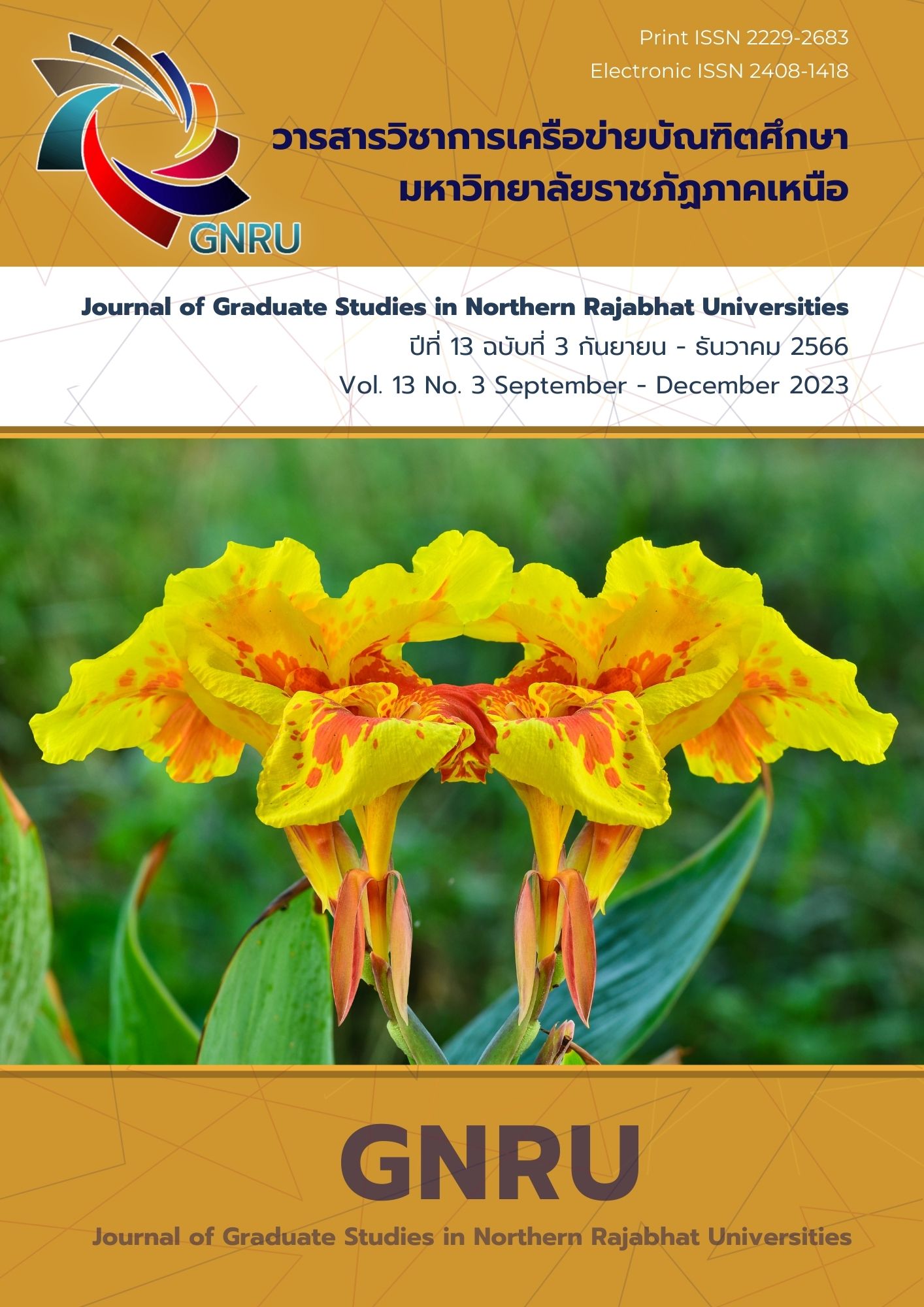6 SAVINGS BEHAVIOR OF GENERATION Z : THE FACULTY OF MANAGEMENT SCIENCES STUDENTS, CHIANG RAI RAJABHAT UNIVERSITY
Main Article Content
Abstract
The purposes of this research were to study savings behavior and factors affecting the savings behavior of those in Generation C (Gen Z). The 307 participants were undergraduate students of the Business Administration Program, Faculty of Management Science, Chiang Rai Rajabhat University. The tool used to collect the data was a questionnaire. The data were analyzed using descriptive statistics and multiple regression analysis. The results revealed that of all 165 respondents or 53.75 percent saved an average of 1,040.42 baht per month. Most of them saved money before spending. The form of savings was cash. The purpose of saving was for emergency expenses. And the factors that affected their saving behavior were found to have four variables that were statistically significant at the 0.05 level, namely, parental incomes, incomes from other sources, accumulated savings value, and expenses. The results suggested that students should be encouraged to realize the importance of savings, have the opportunity to earn money while studying, and be given financial knowledge to manage money and budget in each section efficiently to reduce unnecessary expenses or unnecessary debt for stability in life in the future.
Article Details
References
Alshebami, Ali Saleh; Seraj, Abdullah Hamoud Ali. (2021). Educational Sciences: Theory & Practice, 21(2), 67-84.
Capital Market Academy. (2019). Savings for the working population. Availble on https://www.cma.in.th/cma/academicPaper/download/2 (Retrieved 11 December 2022).
Charoensuk, S., (2016). Determinants of private savings behaviour. Human Resource Development Department, Government Savings Bank. Journal of Rattana Bundit University, 11(1), 92-101.
Chuatchapo, P., et al., (2020). Factors Related to Savings Habits of Accounting Students Faculty of Management Science, Udon Thani Rajabhat University. Availble on https://ms.udru.ac.th/ACresearch/assets/pdf/ 20211019092529.pdf (Retrieved 15 December 2022,
Daenghaem, S. and Charoenphan, N., (2021). Factors Affecting Thai Household Savings in the Digital Economy. Journal of Demography, 37(1), 49-68.
Johnjun, A., (2021). The Household Economy in terms of Income, Expenditure, Saving and Debt at Phitsanulok Province. Journal of Management Science Pibulsongkram Rajabhat University, 2(3). 40-51.
Leekpai, P., (2020). Saving Behaviors of Undergraduate Students in Trang Province. Suan Sunandha Rajabhat University Graduate School Journal, 13(1), 111 – 126.
Lomtaku, W., Leewiwatwong, S., and Ratchusanti, S., (2023). Factors Affecting Thailand University Students’ Saving. Rajatapak Journal, 17(51), 192-204.
Maneelap, S., et al. (2018). Savings behavior of first and second year Bachelor of Nursing Science students, Boromarajonani College of Nursing Surat Thani. In the 6th National Academic Conference on Active Learning. Nakhon Si Thammarat: Walailak University.
Mohd Rahim Ariffin Zunaidah Sulong and Amalina Abdullah. (2017). Students’ Perception Towards Financial Literacy and Saving Behaviour. World Applied Sciences Journal, 35(10), 2194-2201.
Office of Academic Promotion and Registration. (2022). Information system, current student statistics: number of current students at all levels. separate faculties/majors, Chiang Rai Rajabhat University. Availble on https://orasis.crru.ac.th/orasis_crru/mis/statistic_student?keycode=a83aa842a 9b4f4146b39556896e65f58# (Retrieved 1 December 2022).
Pimphatra. (2022). Finance of Gen Z. Thitthai Journal, 13(47), 55-58.
Puey Ungphakorn Institute of Economic Research. (2019). Looking at the savings behavior of Thai people Over 80 million bank account information from DPA. Availble on https://www.pier.or.th/abridged/2019/23/ (Retrieved December 11, 2022).
Suwanluen, D., (2018). Interests and Acknowledgement on a Saving plan and Saving behavior of Undergrads Students at Thaksin University in Phattalung Campus. [Master of Business Administration]. Prince of Songkla University.


